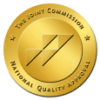Struggling with cocaine addiction can feel overwhelming and isolating. The journey to recovery is riddled with challenges, but you don’t have to face them alone. Our Cocaine detox in Tennessee offers a crucial first step toward reclaiming your life and well-being.
At Tennessee Detox Center in Nashville, Tennessee, you’ll find a compassionate team dedicated to guiding you through this difficult process. Our comprehensive detox programs are designed to safely manage withdrawal symptoms and provide the support you need. We focus on personalized treatment plans that address both the physical and emotional aspects of addiction. Our high-end rehabilitation facilities also cater to your every need, from gourmet meals to memory foam mattresses, private rooms, and more. We want you to feel cared for during your cocaine addiction treatment.
Taking the step to seek help can transform your life. By choosing to explore our Tennessee cocaine detox program, you’re not just breaking free from substance dependence; you’re opening the door to a healthier, more fulfilling future. Embrace the possibility of recovery and let us help you on this vital journey.

What Is Cocaine Detox?
Cocaine dependence and long-term use can lead to withdrawal symptoms including fatigue, depression, nightmares, and even agitation. Cocaine detox is the process of removing cocaine from your body while managing these withdrawal symptoms. This vital stage in recovery helps you regain physical and mental stability, allowing you to transition into further treatment. If you’re looking for a “luxury rehab near me,” our treatment center provides both comprehensive detoxification services and inpatient treatment when you’re ready.
Why Is Cocaine Detox in Tennessee Necessary?
Cocaine detox is necessary for several reasons:
- Physical Recovery: Cocaine affects brain chemistry and body function. Detox helps restore normalcy to both, which is vital for follow-up cocaine treatment.
- Withdrawal Management: Withdrawal symptoms can be severe, including fatigue, depression, and anxiety. Professional detox programs provide medical support to manage these symptoms effectively.
- Preparedness for Treatment: Completing detox enhances readiness for ongoing addiction treatment. It sets a solid foundation for therapy and counseling, whether you’re looking to enroll inpatient, outpatient, or Intensive Outpatient Programs (IOP) for cocaine addiction.
- Focus on Well-being: Detox promotes physical health, enabling you to concentrate on mental and emotional recovery.
Choosing Tennessee Detox Center in Nashville for your cocaine detox ensures you receive compassionate care and expert guidance tailored to your needs, fostering a smoother recovery journey.
Your journey toward healing begins today.
What Are the Signs and Symptoms of Cocaine Addiction?
Recognizing the signs and symptoms of cocaine addiction is crucial for timely intervention. Both behavioral, physical, and cognitive symptoms can provide insights into the extent of an individual’s dependency.
- Hyperactivity and rapid speech patterns can signal cocaine use.
- Unprovoked outbursts of anger or aggression frequently occur.
- Reckless, risky, or dangerous behaviors often increase during addiction.
- Borrowing or stealing money to fund a drug habit is common.
- Lying about one’s whereabouts, activities, and associates may happen regularly.
- Dilated pupils serve as an immediate indicator of cocaine presence.
- A runny or bleeding nose often results from snorting cocaine.
- Increased blood pressure and heart rate can lead to significant health risks.
- High body temperature indicates the stimulant effects of cocaine.
- Excessive perspiration can be a side effect during use.
- Loss of appetite frequently occurs, impacting nutritional health.
- Insomnia is a common struggle, affecting daily functioning.
- Overconfidence is typical due to the euphoric effects of cocaine.
- Poor decision-making capabilities can lead to dangerous situations.
- Irritability arises as drug effects wear off.
- Euphoria can mask the negative consequences of addiction.
- Hallucinations and delusions may occur in severe cases.
- Psychosis can develop, requiring immediate professional intervention.
Understanding these signs and symptoms is vital for recognizing cocaine addiction. Early detection allows for effective support and treatment options, such as those offered at Tennessee Detox Center. We offer cocaine detox Nashville residents can trust, providing a safe and supportive environment for individuals to detox from cocaine and begin their journey towards recovery.
What Are Some Cocaine Addiction Statistics in Tennessee?
Cocaine use continues to be a relevant concern across Tennessee, as part of the broader issue of illicit drug use. According to the 2024 Tennessee State Report – Underage Drinking Prevention and Enforcement, which compiles the latest available data from 2022–2023, approximately 97,000 individuals aged 12 to 20 in Tennessee reported using alcohol in the past month—11.9% of that age group. While the report focuses heavily on alcohol, it also underscores the broader behavioral health challenges facing youth and young adults, including misuse of various illicit substances.
In terms of overall substance use patterns, 49.3% of adults aged 21 and older reported past-month alcohol use, with 20.8% engaging in binge drinking. Although the report does not isolate current-year figures for cocaine use, it highlights the ongoing significance of polysubstance use, including prescription drug misuse. Specifically, alcohol-related deaths among individuals under 21 totaled 114 during the reporting period, with 6,596 years of potential life lost, illustrating the gravity of early substance exposure.
What Are Some Cocaine Addiction Statistics in Tennessee?
Cocaine usage contributes to the broader illicit drug problem in Tennessee. In Tennessee, around 218,000 individuals aged 12 or older used illicit drugs in the past year, making up 18.1% of the population. While specific cocaine usage statistics aren’t detailed, this illicit drug use rate indicates the prevalence of cocaine’s impact. Furthermore, the nonmedical use of prescription-type pain relievers sits at 6.4%, highlighting an interconnected substance abuse issue affecting the same population.
What is the Prevalence of Cocaine Use in Tennessee?
What is the Impact of Cocaine Addiction on Local Communities?
Cocaine addiction strains Nashville’s communities in various ways. High addiction rates correspond with increased crime rates, health issues, and family instability. Local businesses often face challenges related to employee performance and absenteeism. Public resources become stretched due to the need for addiction treatment services, law enforcement, and healthcare support. These community impacts underscore the importance of facilities like Tennessee Detox Center, where expert recovery programs are designed to address these challenges and foster healthier environments for individuals and their families.
What Can I Expect During Cocaine Detox at Tennessee Detox Center?
Tennessee detox centers deliver comprehensive and personalized care designed to meet your individual needs. Facilities such as Tennessee Detox Center, Apex Recovery, Spring2Life Recovery, and Nashville Treatment Solutions utilize thorough assessments to create tailored treatment plans. This personalized approach ensures that all aspects of addiction—physical, psychological, and social—receive adequate attention, improving your chances of long-term recovery.
When it comes to a cocaine detox program Tennessee residents can trust, the process starts with using a whole-person approach to recovery. That’s why facilities in Nashville implement a combination of evidence-based treatments and holistic therapies. This dual approach enhances the detox process, incorporating therapies such as cognitive-behavioral therapy, group and family counseling, music therapy, nutritional counseling, and meditation. By addressing both psychological and physical components of addiction, the treatment promotes a well-rounded recovery experience.
The Nashville area provides a supportive community environment conducive to recovery. Accessing local detox centers can offer convenient services and avenues for support. Being in a familiar setting allows for better integration into your social environment, promoting stronger connections with family and friends during your recovery journey.
Staff at Tennessee detox centers possess extensive training and experience in addiction treatment. Having skilled professionals overseeing your detox process ensures that you receive the best care possible. Medical supervision during detox helps manage withdrawal symptoms effectively and provides a safety net during this critical phase. This level of diligence guarantees a smoother and more secure transition through detoxification.
Taking the step towards cocaine detox in Nashville at Tennessee Detox Center equips you with the resources needed for effective recovery. You gain access to personalized care, a supportive community, and expert guidance, all vital for overcoming addiction and regaining a fulfilling life.
What Are the Benefits of Cocaine Detox in Tennessee?
Improved Physical and Mental Well-Being
Cocaine detox facilitates significant improvements in physical and mental health. Effective detox programs in Tennessee provide a safe environment for eliminating cocaine from your body, guided by medical experts. Withdrawal symptoms can manifest as fatigue, increased appetite, agitation, and depressed mood. Medical supervision during detox helps manage these symptoms, allowing for a more stable recovery.
Reduced Risk of Medical Complications From Withdrawal
Tennessee Detox Center focuses on your health through continuous support and monitoring. Access to a knowledgeable healthcare team ensures any complications from cocaine use disorder are swiftly addressed. Your safety is prioritized, reducing risks associated with dehydration, malnutrition, and extreme fatigue.
Get Support After Treatment
At Tennessee Detox Center, we’re here to help prepare you for inpatient treatment or help you find other aftercare services. Whether you’re looking for an IOP for cocaine addiction Tennessee residents can trust, or a PHP for cocaine addiction Tennessee residents can use, we’ll get you set up with aftercare services so you can feel ready to tackle any challenges that come your way. Aftercare services are just one of many confidential and exclusive treatment options at luxury inpatient rehab offers.
Frequently Asked Questions About Cocaine Detox in Tennessee
Some doctors prescribe Modafinil for cocaine addiction, although it’s normally used as a treatment for narcolepsy and other sleep disorders. Our treatment team at Tennessee Detox Center will let you know what medications, if any, are right for you during your personalized treatment plan.
The crash after stopping cocaine use can happen almost instantly, and the psychological symptoms may last for weeks. However, everyone’s experience with cocaine withdrawal is different, and the duration of withdrawal can vary based on factors such as frequency and amount of use, overall health, and individual response to treatment.
The best way to deal with cocaine cravings during withdrawal is to have a strong support system in place. This can include friends and family who are aware of your addiction and can provide emotional support, as well as professional therapists or counselors who can offer guidance and coping strategies. Our team at Tennessee Detox Center provides 24/7 medical and addiction support to help you during the detox process.
Cocaine use can lead to intense physical and psychological dependence, making the withdrawal process challenging and potentially dangerous. Without proper medical supervision, individuals may experience severe symptoms such as depression, anxiety, insomnia, and intense cravings that can lead to relapse.
The treatment for cocaine withdrawal typically involves a combination of medication-assisted therapy (MAT) and behavioral therapies. MAT involves the use of medications to manage withdrawal symptoms and reduce drug cravings. Behavioral therapies aim to identify triggers for drug use and develop coping strategies to avoid relapse. Our private luxury rehab offers both treatments.

| Medically Reviewed By: Board-Certified Psychiatrist and Addictionologist |

| Clinically Reviewed By: Board Certified Clinical Social Worker |
Did you know that your insurance plan may cover medical detox?

Elevating Recovery:
Unmatched Amenities & Individualized Support

State-Of-The-Art Facility

Luxury Bedrooms

Dedicated Private Chef

Fun and Games

Clinician & Medical Owned & Operated

Family Therapy Sessions

Weekly Outings

Twice‑Weekly Individual Therapy

Small Groups, Big Recovery
Get Family Support Now
Supporting Families Through Recovery
We understand addiction affects the whole family. Our comprehensive family program helps rebuild trust and restore relationships.
Weekly Family Therapy Sessions
Educational Workshops
Support Groups
Communication Skills Training
Get Family Support Now






